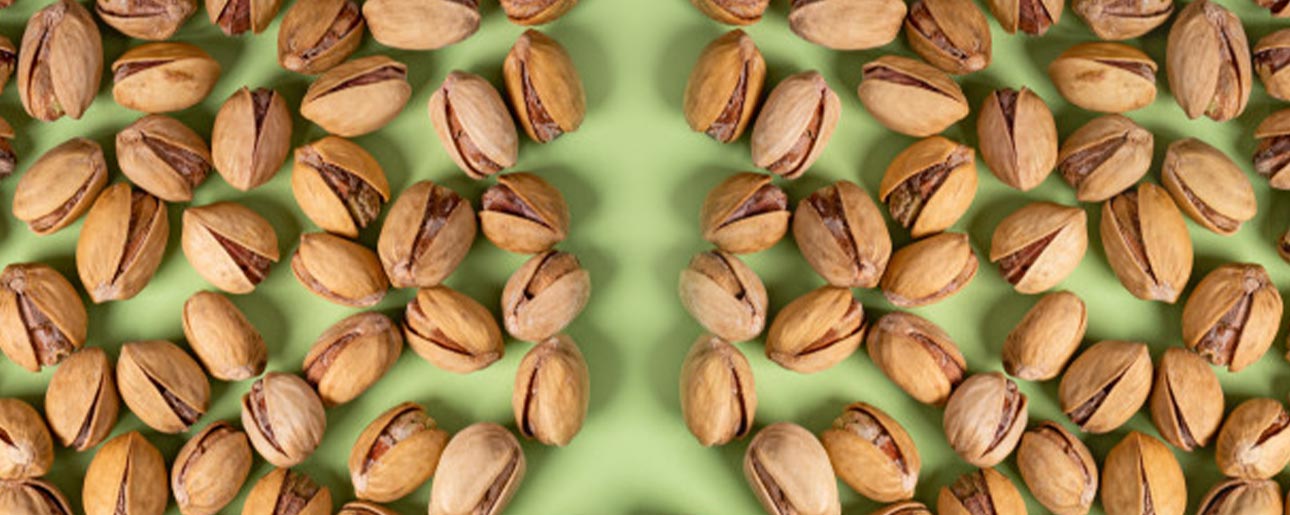
WHY YOU SHOULD CHOOSE IRANIAN PISTACHIO?
WHY IRANIAN PISTACHIO?
IRANIAN PISTACHIO offer various advantages that set them apart. The main four commercial varieties provide the opportunity of choice for the customers. Iranian pistachios have an unrivaled, world-famous taste. Iranian pistachios are roasted at higher temperatures, which is made possible by their higher unsaturated fat content. High temperature roasting eliminates any bacterial contamination that may be present in raw product.
Five major advantages of IRANIAN PISTACHIO are:
Variety: There are many different cultivars of Iranian pistachios. The following four are available for international trade: Fandoghi pistachio (40% of pistachio orchards). Kalleh Gbouchi (20%), Akbari pistachio (5%) und Ahmad Aghaei opistachio (12%), with the last two on the rise. Each variety has its distinct and flavor and unique properties.
High Kernel to In-Shell Ratio: Iranian pistachios have a high kernel to in-shell ratio, which means that you are buying a higher amount of edible kernels relative to the total amount or pistachios.
Roast ability: Due to their higher unsaturated fat content, Iranian pistachios can be roasted at 160 to 180°C. This brings out the unique flavor of the nut, while eliminating any bacteria from the end product. Lower roasting temperatures of around 120°C recommended by some suppliers will not load to the same result.
Taste: For quite a long time, consumers around the world have shown a preference for the taste of Iranian pistachios. All four commercial varieties of Iranian pistachios have a rich, unique and distinctive llavour.
Tradability: The large number of producers, buyers, exporters and importers of Iranian pistachios creates ideal conditions for a competitive market. As a result, fair trade opportunities present themselves to all involved.
To know More About Pistachio In Shell And Kernels Please Click The Words
Maximum free water content allow for raw dried pistachios is 5%, with a 3% maximum for roasted pistachios.
Foreign material: glass, metal and live insects have been considered completely prohibited. Acceptable foreign material are pistachio-related like the hull, stems, and shells and sand.
Variety: Iranian pistachios have divided int two categories according to their shape: long pistachios with the ratio more than 1.52 and rounded pistachios with the ratio less than 1.52.
Non-uniformity of variety: the percentage of round pistachios in a sample of long pistachio or vice versa.
Non-uniformity of size: ratio of the total weight of the 10 largest nuts in a sample of 100 nuts to the weight of the smallest 10.

